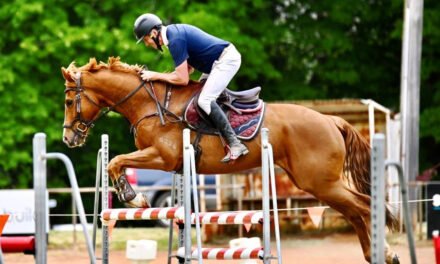The Mayor, Cr Brian Hood, raised the Aboriginal Flag at the community flagpole in Vincent Street, Daylesford, to commemorate Sorry Day. Councillors Jen Bray and Lesley Hewitt and Reconciliation Action Committee member, Craig Barrett were among the small crowd that gathered to witness the event.

A small crowd attended the Sorry Day Ceremony. (Photo: Maria Abate)
The first National Sorry Day was held on 26 May 1998, one year after the Bringing Them Home report was tabled in Parliament. The Bringing Them Home report was a result of a Government Inquiry into the past policies which caused children to be removed from their families and communities in the 20th century.
“National Sorry Day is an important day for all Australians to reflect on Australia’s true history and to commit to playing a role in the healing of the nation,” said Cr Hood.
“Healing enables people to address their personal distress, to overcome trauma, and to live well. The Survivors of the Stolen Generations and their families have endured a lifetime of trauma, grief, and loss. We can honour their lived experiences on Sorry Day by telling the truth about our nation’s history. The truth will help all Australians to reconcile.”
The Mayor reminded people about the exhibition of Coranderrk Portraits at the Daylesford Museum throughout Reconciliation Week. The exhibition was produced by the Museum in partnership with Djaara Elder, Uncle Ricky Nelson and with funding from Council. The official launch of the exhibition will be at 11:00 am on Monday at the Museum.
Today is also the 6th anniversary of the Uluru Statement from the Heart which invited the Australian people to walk together to build a better future by establishing a First Nations Voice to Parliament enshrined in the Constitution.
Against the backdrop of Sorry Day, research released today by Caritas Australia shows that over two-thirds of Australians believe it is important for the Federal Government to address the legacy of the Stolen Generations. This sentiment is even stronger amongst younger Australians, with 82 percent of 18-34 year olds believing that addressing the legacy is important.
While only 49 per cent of Australians see National Sorry Day as a significant commemorative day in the Australian calendar, this increases substantially to 70 per cent of Gen Z (people born between 1996 and 2010).
Related Stories:
Reconciliation Week at Daylesford Museum





